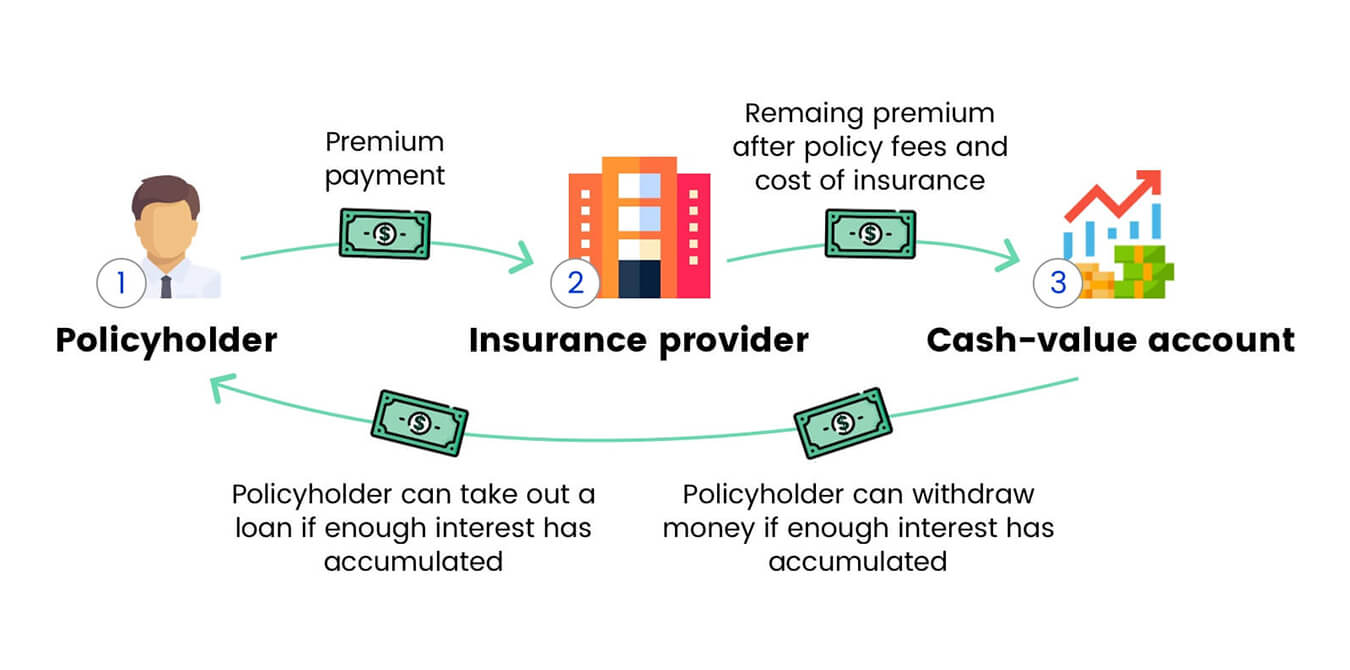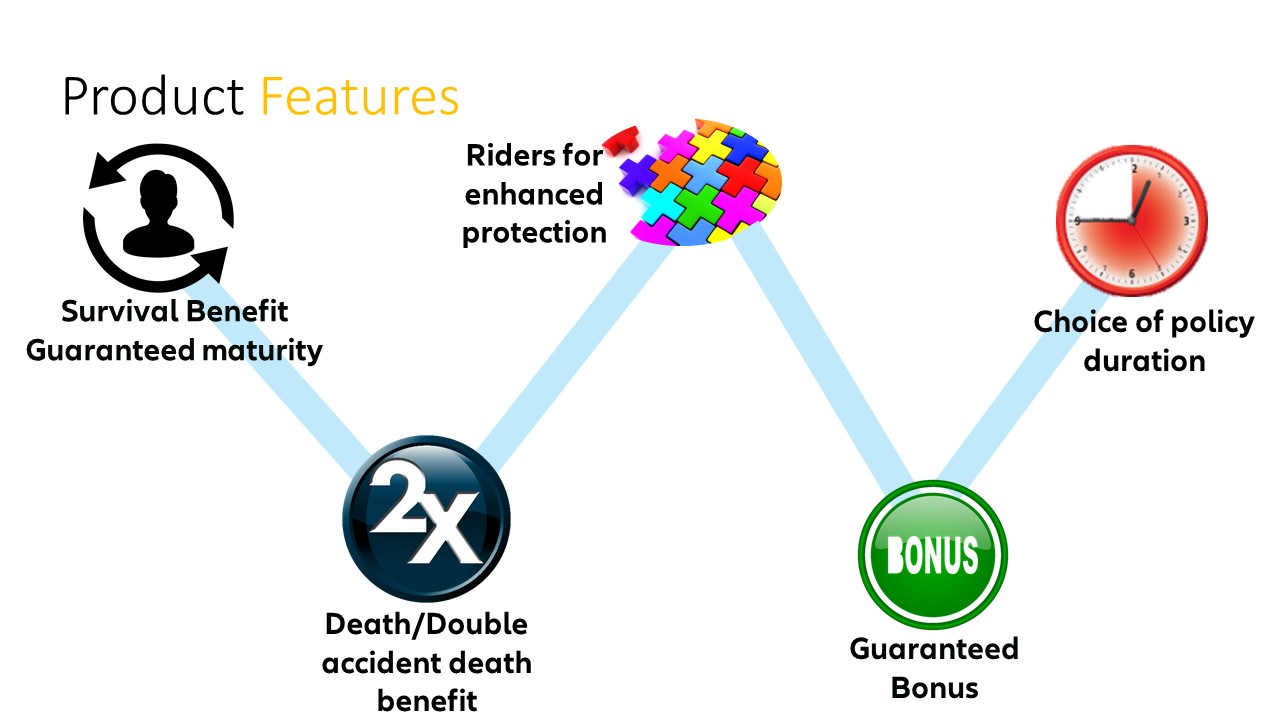

Finance
What Is An Index Life Insurance Policy?
Published: October 15, 2023
Discover the benefits and features of index life insurance policies, a smart financial tool for individuals looking to secure their future. Learn about how these policies can provide long-term growth and financial stability.
(Many of the links in this article redirect to a specific reviewed product. Your purchase of these products through affiliate links helps to generate commission for LiveWell, at no extra cost. Learn more)
Table of Contents
Introduction
Life insurance is an essential financial tool that provides protection and peace of mind for individuals and their families. It offers a financial safety net in the event of unexpected circumstances such as death or disability. While there are various types of life insurance policies available in the market, one option that has gained popularity in recent years is the index life insurance policy.
An index life insurance policy is a unique blend of traditional life insurance and investment components. It provides policyholders with a death benefit as well as the opportunity to accumulate cash value through an investment that tracks a specific financial index, such as the S&P 500. This type of policy allows individuals to potentially benefit from the positive performance of the market while still providing a level of protection for their loved ones.
Understandably, navigating the world of life insurance can be overwhelming, especially with the addition of investment features. That’s why it’s important to have a clear understanding of how index life insurance policies work, the benefits they offer, and the considerations to keep in mind before deciding if this type of policy is right for you.
In this article, we will explore the ins and outs of index life insurance policies, providing you with the information you need to make an informed decision about your financial future.
What is an Index Life Insurance Policy?
An index life insurance policy, also known as an indexed universal life insurance policy or IUL, is a type of permanent life insurance that combines a death benefit with an investment component linked to a specific financial index, such as the S&P 500. Unlike traditional universal life insurance policies, which offer a fixed or adjustable interest rate, an index life insurance policy allows policyholders to potentially earn returns based on the performance of the chosen index.
With an index life insurance policy, a portion of the premium paid by the policyholder is allocated towards the cost of insurance and administrative fees, while the remaining amount is invested in an index-linked account. The invested funds are subject to a cap, participation rate, and annual reset, which help determine the credited interest based on the index’s performance.
It’s important to note that the policyholder’s funds are not directly invested in the index. Instead, the insurance company uses a formula to calculate the interest credited to the cash value based on the index’s performance. If the index performs well, the cash value of the policy has the potential to increase at a higher rate. However, if the index performs poorly or experiences negative returns, the cash value may not grow or can even decline.
One of the key features of an index life insurance policy is the ability to accumulate cash value over time. This cash value can be used for various purposes, such as supplementing retirement income, funding educational expenses, or even as an emergency fund. Additionally, the policyholder has the flexibility to adjust the death benefit amount and the timing and amount of premium payments, giving them control over the policy’s structure according to their needs and financial goals.
It’s important to understand that the primary purpose of an index life insurance policy is to provide a death benefit to beneficiaries upon the policyholder’s passing. The investment component is an added benefit that can potentially enhance the policy’s cash value growth. However, it’s crucial to carefully evaluate the policy’s fees, surrender charges, and potential risks associated with market volatility before deciding if an index life insurance policy aligns with your financial objectives.
How Does an Index Life Insurance Policy Work?
An index life insurance policy works by combining the benefits of life insurance coverage with the potential for cash value accumulation through investments linked to a specific financial index. Here’s a breakdown of how it operates:
- Premium Payments: As with any life insurance policy, the policyholder pays regular premium payments to the insurance company. These premiums are typically divided into two parts: one portion covers the cost of insurance and administrative fees, and the other portion is allocated towards the investment component.
- Investment Component: The investment component of an index life insurance policy is where the cash value accumulation takes place. The funds allocated to the investment component are placed in an index-linked account, which tracks the performance of a specific financial index, such as the S&P 500.
- Credited Interest: The insurance company calculates the credited interest based on the performance of the chosen financial index. This interest is credited to the cash value of the policy on a regular basis, usually annually. The credited interest is subject to certain limitations, such as caps, participation rates, and annual resets, which are predetermined by the insurance company.
- Death Benefit: The primary purpose of an index life insurance policy is to provide a death benefit to the policyholder’s beneficiaries upon their passing. The death benefit is the amount that will be paid out to the beneficiaries when the insured person dies. The death benefit is determined by the policyholder at the time of purchase and can typically be adjusted during the life of the policy.
- Flexibility: Index life insurance policies offer flexibility to the policyholder in terms of adjusting the death benefit amount, timing and amount of premium payments, and utilizing the cash value accumulation. These features allow policyholders to customize their coverage and investment strategy according to their changing needs and financial goals.
It’s important to understand that the performance of the chosen financial index directly impacts the cash value growth of the policy. If the index performs well, the cash value can increase significantly. However, if the index experiences poor performance or negative returns, the cash value may remain stagnant or even decline.
Furthermore, it’s essential to consider the fees and charges associated with index life insurance policies. These may include administrative fees, cost of insurance charges, and potential surrender charges if the policy is terminated or surrendered before a certain period of time has elapsed. Evaluating these costs and potential risks is crucial in determining if an index life insurance policy aligns with your individual financial situation and long-term objectives.
Benefits of an Index Life Insurance Policy
Index life insurance policies offer several benefits that make them an attractive option for individuals seeking both life insurance coverage and potential cash value accumulation. Here are some of the key advantages:
- Potential for Cash Value Growth: With index life insurance, the cash value has the potential to grow at a higher rate compared to traditional universal life insurance policies, especially during periods of positive market performance. This can provide policyholders with an opportunity to build cash value that can be utilized for various financial needs in the future.
- Death Benefit Protection: The primary purpose of any life insurance policy is to provide a death benefit to beneficiaries in the event of the insured person’s passing. Indexed life insurance policies offer the same level of death benefit protection as traditional life insurance policies, ensuring financial security for loved ones.
- Flexibility: Index life insurance policies offer flexibility in terms of adjusting the death benefit amount, premium payments, and utilization of the cash value. This flexibility allows policyholders to adapt their coverage and investment strategy to match their changing needs and goals over time.
- Potential Tax Advantages: The cash value growth in an index life insurance policy typically accumulates on a tax-deferred basis. This means that policyholders do not owe taxes on the cash value growth until they withdraw or receive a distribution from the policy. This tax deferral can provide individuals with potential tax advantages and the ability to maximize their investment returns over the long term.
- Protection Against Market Downturns: While index life insurance policies offer the opportunity to benefit from positive market performance, they also provide a level of protection against market downturns. Even if the chosen index experiences negative returns, the policy’s cash value may have a floor or a guaranteed minimum interest rate, which ensures that the cash value does not decline.
It’s important to note that the benefits of an index life insurance policy may vary depending on several factors, including the performance of the chosen index, policy fees, and the policyholder’s individual financial circumstances. Discussing these benefits with a qualified financial professional can help individuals make an informed decision about whether an index life insurance policy aligns with their specific goals and needs.
Drawbacks of an Index Life Insurance Policy
While index life insurance policies offer unique benefits, it’s important to consider the potential drawbacks before making a decision. Here are some of the key drawbacks associated with these policies:
- Market Volatility: The performance of an index life insurance policy is directly linked to the chosen financial index. If the index experiences significant fluctuations or performs poorly, the cash value growth of the policy may be negatively affected. This means that there is a level of uncertainty and potential risk involved in relying on market performance to accumulate cash value.
- Fees and Charges: Index life insurance policies often come with administrative fees, cost of insurance charges, and potential surrender charges if the policy is terminated or surrendered early. These fees and charges can eat into the potential returns of the policy and may impact the overall viability and value of the investment component.
- Complexity: Index life insurance policies can be more complex than traditional life insurance policies due to the combination of insurance coverage and investment components. Understanding the nuances of how the policy works, including the participation rates, caps, and annual reset, may require a higher level of financial literacy and may require regular monitoring to ensure it aligns with your financial goals.
- Potential Underperformance Compared to Other Investments: While an index life insurance policy has the potential for cash value growth, it may not offer the same returns as other investment options, such as direct investment in the stock market or mutual funds. If your primary objective is to maximize investment returns, you may find other investment avenues more suitable.
- Long-Term Commitment: Index life insurance policies are typically long-term commitments, and surrendering the policy early may result in significant penalties or fees. It’s crucial to evaluate your long-term financial goals and commitments before purchasing an index life insurance policy to ensure it aligns with your overall financial plan.
It’s essential to carefully weigh the benefits against the drawbacks and consider your individual circumstances and financial goals before deciding if an index life insurance policy is the right choice for you. Consulting with a financial advisor or insurance professional who specializes in life insurance can provide valuable insights and help you make an informed decision.
Is an Index Life Insurance Policy Right for You?
Deciding whether an index life insurance policy is the right fit for you requires careful consideration of your financial situation, goals, and risk tolerance. Here are some factors to consider when evaluating the suitability of an index life insurance policy:
- Investment Objectives: If you are looking for a life insurance policy that provides potential cash value growth through market performance and offers the flexibility to adjust coverage and premium payments, an index life insurance policy may be worth considering. However, if your primary focus is on maximizing investment returns, other investment options may be more suitable.
- Risk Tolerance: Index life insurance policies are subject to market volatility, and the cash value growth is dependent on the performance of the chosen financial index. If you have a low tolerance for risk or are uncomfortable with the potential fluctuations in cash value, a more conservative life insurance or investment option may be a better fit for you.
- Financial Stability: Index life insurance policies generally require regular premium payments over a long-term commitment. Before purchasing such a policy, it’s important to assess your financial stability and ensure that you can comfortably afford the premiums without compromising your overall financial well-being.
- Understanding of Policy Features: Index life insurance policies can be more complex than traditional life insurance policies due to the integration of investment components. It’s crucial to fully understand the features, limitations, and potential risks associated with these policies. If you are not comfortable or knowledgeable about the workings of the policy, seeking guidance from a financial advisor or insurance professional is advisable.
- Long-Term Financial Goals: Consider your long-term financial goals and how an index life insurance policy fits into your overall financial plan. If you have specific goals that align with the benefits offered by index life insurance, such as supplemental retirement income or funding educational expenses, it may be a suitable option. However, if your goals are more short-term focused or do not align with the features of the policy, alternative financial strategies may be more appropriate.
Ultimately, the decision of whether an index life insurance policy is right for you depends on a careful evaluation of your individual circumstances, risk tolerance, and financial objectives. It’s recommended to consult with a knowledgeable financial professional who can assess your needs and guide you in selecting the most suitable life insurance option that aligns with your unique situation.
Conclusion
Index life insurance policies offer a unique combination of life insurance coverage and the potential for cash value growth tied to the performance of a chosen financial index. These policies can provide individuals with the opportunity to benefit from positive market returns while still providing a level of protection for their loved ones.
However, it’s important to carefully evaluate the benefits and drawbacks of index life insurance before making a decision. Consider factors such as your investment objectives, risk tolerance, financial stability, understanding of policy features, and long-term financial goals.
If you are comfortable with market volatility, have a long-term perspective, and are seeking a flexible life insurance policy with potential for cash value growth, an index life insurance policy may be a suitable option. However, if you have a low risk tolerance, are seeking maximum investment returns, or have short-term financial goals, alternative life insurance or investment options may be more appropriate.
Ultimately, it’s crucial to consult with a qualified financial advisor or insurance professional who can assess your individual needs, educate you on the details of index life insurance policies, and guide you in making an informed decision that aligns with your financial situation and goals.
Life insurance is an important aspect of financial planning, and finding the right policy to protect your loved ones and meet your long-term objectives requires careful consideration. By understanding the intricacies of index life insurance policies and how they can fit into your overall financial plan, you can make a confident decision that provides peace of mind and financial security for the future.














